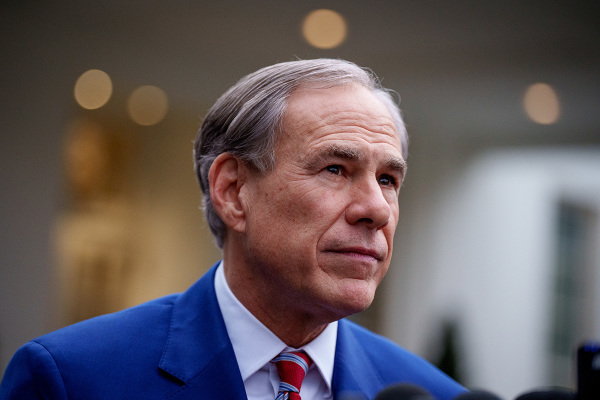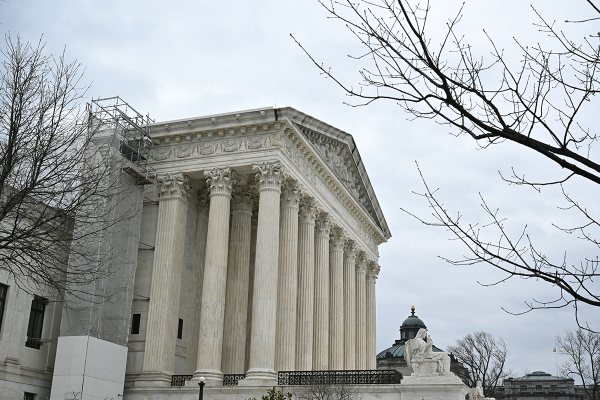Interview with Edmund Gibbs, Professor at Fuller Seminary
According to major Christian researchers, only half of all protestant pastors have a biblical worldview, lending many to question the state of the church today.
The Christian Post interviewed Edmund Gibbs, author of popular church growth text Church Next, and Professor of Church Growth in the School of Intercultural Studies at Fuller Theological Seminar, about pastoral needs and the upcoming trends in church growth.
Church growth was pretty big for a while. What do you believe is the next trend in Christianity?
We tend to look at church growth in terms of inviting people to church, to come on our terms. You have to turn that around. Rather than inviting people to come, the church has to go to the world and communicate the Gospel outside of the sanctuary. The church must have a missionary mindset in our own backyard. That’s the next trend.
Are there people who are adopting this model?
Yes. Increasingly, the leaders who are under 40s tend to get it better. Also, you see this more on the western and eastern seaboards, which are the more secular areas of the country. In the south, you can still invite people to church, and they will come to hear good preachers, but that is not the case on the coasts, especially in places like Seattle and the Bay Area. It's because they're more secular that this type of model needs to get adopted. This needs to spread to the other areas of the country.
Do you believe that small groups are responsible for church growth to some extent?
Yes, indeed. It'd have to be a particular kind of small groups. Some small groups are very introspective and don't have an outward focus. Clearly those groups are not going to facilitate the growth very much. It would have to be healthy groups with an inward and an outward focus.
What can you tell us about the model of megachurches for church growth?
There are two kinds of megachurches. There are those that have a mission focus. There are others that only grow at the expense of surrounding churches, a parasite church. But if they are large churches that have a big vision and are reaching out to those who are not constant churchgoers, then they can have a significant ministry, and some clearly do. Certainly two that come to mind are Bill Hybels at Willow Creek and Rick Warren at Saddleback, but there are others.
What do megachurches mean for American Christianity?
Well I think they are mainly significant in suburbia, which are firmly affluent. Recent and formerly churched people go there. So the megachurches have been successfully inviting them and restoring people to faith. That has been significant, particularly amongst the baby boomers.
Maybe they have walked away from the church and traditional denominations in the 60s, but when they got married and had children, they wanted the values for themselves and their children, but didn't want to return to the kind of churches they grew up in. So they looked for a church that has quality ministry and effective leadership, and are relevant to their needs. However, that wave has largely passed now. You cannot simply invite people to come back to church. They want participation, and they want successful leadership and empowerment. So I think we need a very different kind of church for the new generation.
What about pastoring the congregation?
Enormously important. I think as families are dispersed with the mobility of the population, the pastoral care tends not to take place in the larger generational family complex, which was so true in the past. So you can't talk to a mother, or grandparents, or aunt. That kind of loneliness brings people into the church for pastoral support.
But then on top of that, you've got the collapse of so many marriages. So that means that increasingly those who are single parents will turn to the church, and on top of that, during the time of rapid cultural change where people are losing their jobs and facing issues in their life that are bigger than they can handle personally. They will turn to the church for that kind of help, so huge pastoral demands.
Then, that means pastors need to be more equipped. How have they been handling it in these days?
There are two issues. Some pastors are more teachers than pastors and may not have been trained or spiritually prepared to give pastoral care. And then, you have pastors whose primary calling are pastoral ministries, and unless they share that ministry, they tend to get overwhelmed by the problems they have to deal with. When they get overwhelmed, then their health suffers. Their family life suffers. They can end up in serious trouble.
Since pastors are under some strain, what are some of your suggestions for how to care for them?
First, part of the problem stems from the training, which is probably too individualistic and competitive. They were trained to be loners, and that's a dangerous thing in ministry. I think that you need accountability outside of your congregation, someone you can turn to for wise counsel. It might be your superintendent or an older Christian minister, who is not part of your church. Second, you need a network within the life of the local church and that means the building up of a pastoral team and the sharing of the load.
Pastors take on the burden that God never intended in the first place. The leadership of the local congregation does not rest on one person; it rests with a leadership team.
Is that one strength of megachurches?
That is a strength, but also a weakness, of course, is that megachurches tend to be highly programmatic. You end up running programs to the ground. The megachurch has its own problems in that regard.
I believe that smaller churches would probably play a bigger role in the future. I say that because they're beginning to recognize that the individualistic dispersed community is a highly dysfunctional model and creates enormous social problems.
I believe in the new urbanism, where they redesign the community so that many more people can live closer to where they work and their residential areas can be multigenerational. If that takes on, which I think it will, it means the community based church will have a future again.
That's very surprising because it would seem the trend is in the opposite direction, as many churches are becoming megachurches.
Well, the smaller churches are more effective in reaching new people but many of the big churches draw members from other churches. That is an issue they need to address.
What do you believe ministries should be doing?
Oftentimes, our society has created enormous diversity. The change we've got to see is that more and more ministering of the church will take place off the church premises, which is where people work, live, and where the recreation is because the ministries of the church have to remain accessible to people where they are. So often our problems, our programs are far too churchy.
I have often heard that the Word is missing from ministry.
Yes, I think it has been replaced by pop-psychology or simply just hanging their thoughts on an isolated text - promise boxes that will give people a happy thought, rather than a comprehensive understanding of the Scriptures. The result is we have a generation that is biblically illiterate.
Another concern is there seems to be a decrease in the public reading of the Scriptures, even in the evangelical churches, despite all of our modern versions, study Bibles, and the rest.
How can ministries improve at what they're doing?
I think we have to return to a Biblical preaching, not an expository teaching. And not in a wooden way but in a highly relational way because so much of the Bible is case studies of God dealing with situations, nations, groups, and with individuals. We've got to come to the Bible in that way. I think preachers should use more we language, not you language because we're preaching to ourselves, not just to other folks. We have to explain technical and Biblical terms. One of our problems is that we are structured to deliver the message; we're not structured for the congregation to respond to the message.
Communication is two ways. I ask people, when did you last have to do anything as a result of hearing a sermon. Now that's where the smaller groups come in. Well, we've heard from God this Sunday. Now what does God expect us to do with what we've heard? Rather than here's another Bible lesson, we ought to come back to the same passage and to say what does this have to say to each of us individually, in this group, in this neighborhood, and in this place of work, wherever God has placed us.
Can you briefly speak on a challenge to the church?
We've got to redefine church. Church is not a place you go to; church is a people to which you belong. On the front of a T-Shirt it states, “Don’t go to church.” On the back it says, “Be the church.” We've got to recognize that the church is community not a place.
Second, we've got to realize that the church is a movement, not an institution. A movement moves. At the end of the service, you don't dismiss a congregation. You disperse it. It's not out of sight and out of mind.
Also, I think we focus on membership rather than discipleship. The result is we have undiscipled church members. We have to follow Jesus seven days of the week in every area of our lives.
How do you feel about using technology in the church?
I think we have to be technologically savvy. Being in a communication ages means we communicate on the macro level and on the personal level. We need good Web sites that are interactive and not simply a notice board for the church. If we have access to the public media, then we need to use that well. Beyond just televising or broadcasting our church services, we need to speak church news gracefully to those who do not know our language. The emerging churches are characterized by good interactive Web sites. I think that's very important.






















